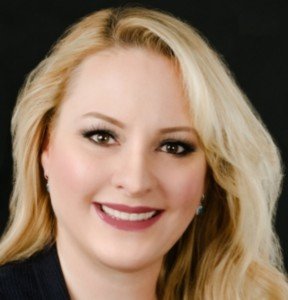
There are reasons a parent SHOULD worry whether or not their kids like them.
Trying to be “popular” with your kids is shunned by many parents. But this may be a matter of semantics – the choice of the word “popular” or “like.”
A Question to Ask Yourself
To whom would you rather ask for advice concerning a troubling situation: someone you dislike, or someone you like?
No adult in their right mind will seek life advice from someone they can’t stand, or – to put it more gently – someone whom they don’t get along with or feel comfortable around.
Really, who does this: sharing one’s trials and tribulations with someone they simply do not like?
Now, if your tween does not like you, why on earth would he or she seek life counsel from YOU?
Just like you won’t be sharing your ups and downs, celebrations and trials with someone you dislike, your own kids will be hesitant to do the same with you – if they don’t like you.
The problem, then, is what some parents will do in an attempt to win brownie points with their children, or to be popular with them.
“I agree with the core of your point here but disagree with the term of ‘popular,’” says Dr. Tia Kern-Butler, a licensed psychologist for over 20 years who treats a broad range of issues including relationship problems and behavioral issues of children and adolescents.
“Having a positive relationship with your children is very important. A child’s relationship with their parent is the foundation upon which their sense of self and their relationship with others is formed.
“This relationship should be grounded in love, unconditional positive regard and trust.
“When discipline needs to be done it should be done with the purpose to teach, not just to be punitive.
“The goal in raising children is to teach them self-control and personal responsibility in preparation for successful independence.
“Discipline should be done with this in mind. Children need both love and discipline from their parents — but the love has to come first.
“When children know they are loved, then they may not ‘like’ their parent in the moment — but they trust that their parent has their best interest at heart.”
It’s difficult to believe that a child, tween or teen would truly hate – truly detest – a parent JUST BECAUSE of some house rules such as curfew, homework, chores, computer time and phone time.
The house rules may be a tipping point that sends an already troubled child over the edge (yelling obscenities, slamming doors, becoming physically aggressive), but in order for this to happen, there must be a deeper problem that’s been festering for a long time – involving the parent-child dynamics.
“Best Friend” Is a Term of Respect, not Disrespect
Kids who have a lot of animosity towards a parent won’t be calling them their “best friend.”
Geez, there are middle-age people who consider their parents their best friends! This is no less disrespectful than when a teen says, “My mom is my best friend.”
When a child truly cherishes and loves a parent, he or she may be steamed over a particular rule, but will still love that parent.

Freepik.com
“Parents can and should encourage their children to come to them, and they do this by managing their own reactions,” says Dr. Kern-Butler.
“If a parent immediately reacts with intense emotions and punitive response, the child will not go to them.”
Suppose you – a parent – just happen to be struggling with body image issues.
Would you take this problem to a woman you hate because she’s argumentative and critical, or to a woman who’s always been a great listener without being critical or irate with you?
The answer is a no-brainer!
If you’re a man, it’s the same question. You’re certainly not going to bring your woes to a human being who’s quick to demean and invalidate you, but rather, one who’s going to LISTEN, not judge, and possibly offer some smart advice without yelling at you.
“If a parent is able to listen first, and a child feels heard and understood, and then the parent decides how to respond, the child will feel comfortable approaching the parent for advice,” says Dr. Kern-Butler.
“This is a pattern that the parent demonstrates to the child over time so that by the time the child is older, the foundation of trust is there.”
 Currently in private practice Dr. Kern-Butler spent 10 years as the lead child and adolescent psychologist with Winter Haven Hospital and served as the mental health liaison for the Children’s Advocacy Center for 14 years.
Currently in private practice Dr. Kern-Butler spent 10 years as the lead child and adolescent psychologist with Winter Haven Hospital and served as the mental health liaison for the Children’s Advocacy Center for 14 years.
Professionalpsychologyofpinellas.com/about-me
 Lorra Garrick has been covering medical, fitness and cybersecurity topics for many years, having written thousands of articles for print magazines and websites, including as a ghostwriter. She’s also a former ACE-certified personal trainer.
Lorra Garrick has been covering medical, fitness and cybersecurity topics for many years, having written thousands of articles for print magazines and websites, including as a ghostwriter. She’s also a former ACE-certified personal trainer.
.









































